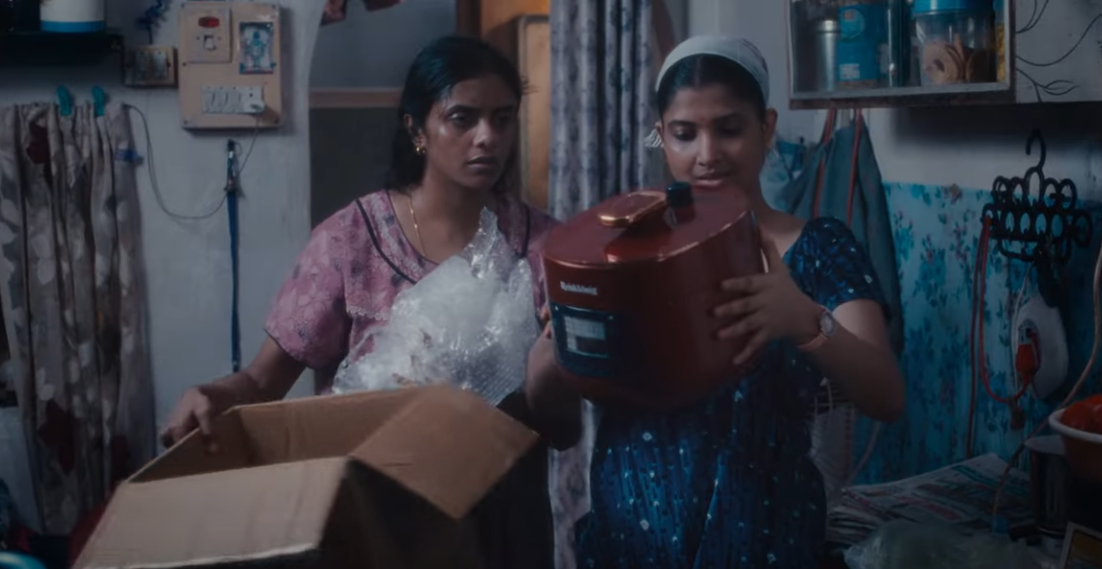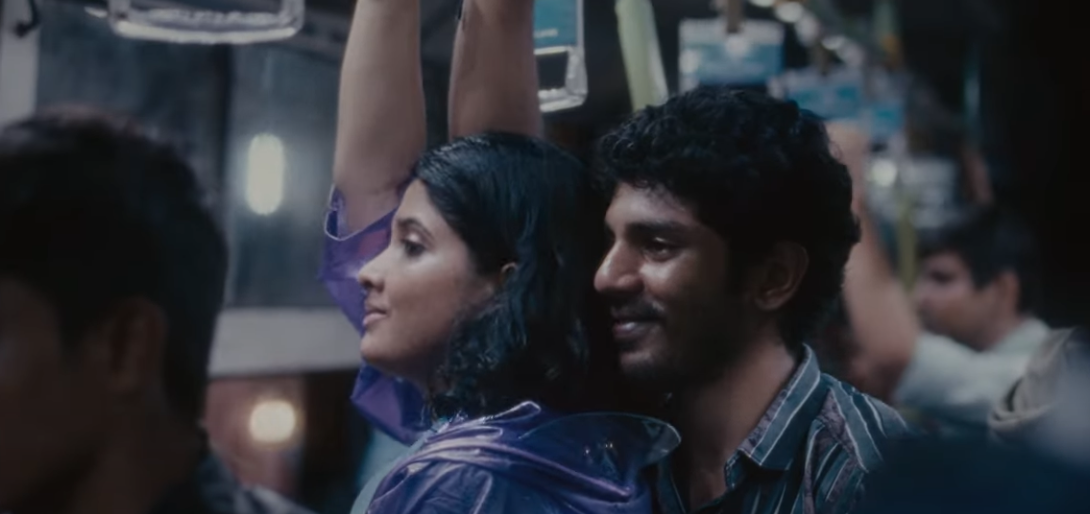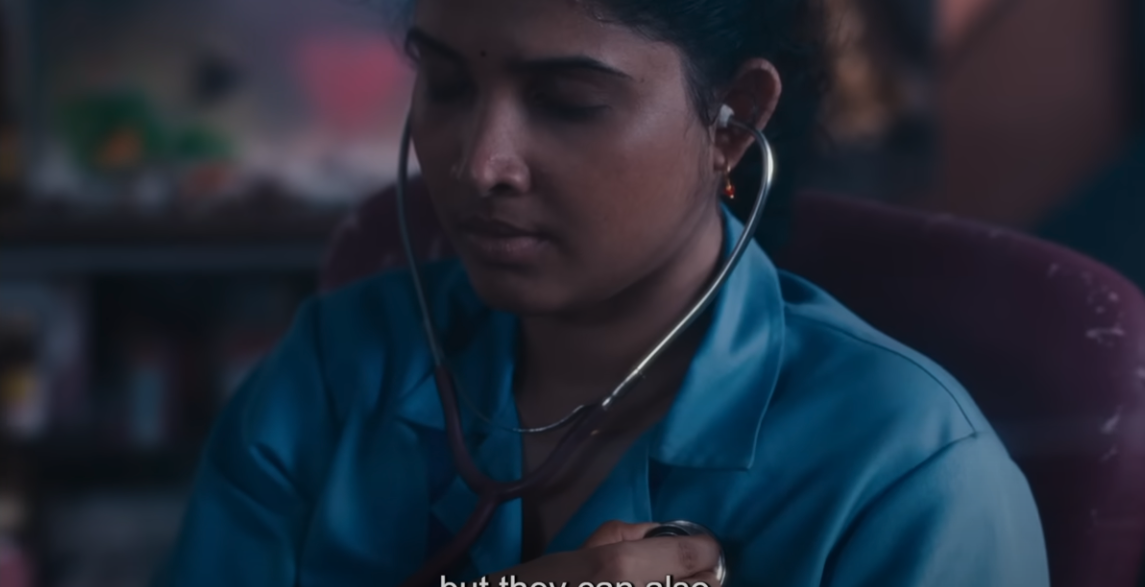All We Imagine as Light, dir. Payal Kapadia
Payal Kapadia's feature-length fiction debut is a slow-burn tender portrait of a female friendship set against the backdrop of a heaving metropolis, where husbands are spectres and cities are dreams.
The film centers on Malayali nurses Prabha and Anu, colleagues and roomates who jointly care for a pregnant cat. Prabha is a silent stoic senior nurse whose husband has spent most of their arranged marriage working in Germany; Anu is a pouty junior who secretly texts her paramour on the job whilst slipping low-income patients birth control pills.

Kapadia shoots dialogue in long takes with only one of the performers in frame, while the other only heard off-screen. She favours wide still shots, coaxing images of rooms, cityscapes, and even dating portraits for matchmaking, to tell the entire stories. This allows her to convey a surprising amount of interior-driven narrative despite glacial pacing. A sudden gift from her absentee husband quietly undoes Prabha, whilst she is being courted by a doctor with (softboi) poetry and half-hearted gestures. Anu and her boyfriend Shaiz work to hide their inter-religious relationship from others, while having to make do with make out sessions in basement carparks and on edges of football fields.

Kapadia's cinematic restraint and almost motionless mise-en-scene were already seen in her 2017 short film Afternoon Clouds, which interestingly shares the same concerns as her latest: women in love with ghosts of their husbands, young people only finding love in liminal spaces, and (un)surprisingly, cats.
And so Prabha and Anu's friendship ebbs and flows across wordless scenes that Kapadia stretches out: Prabha chiding Anu's romantic choices after being pressured by colleagues, Anu unable to understand how Prabha remains in her non-existent marriage. But the MacGuffin of this film, as it were, is found in a third woman. Parvaty is an elderly cook at the hospital, whose tenement is being torn down by condo developers. (The social commentary here is excellently handled, neither heavy-handed nor cheaply depicted, whilst focussed on the emotional impact on Parvaty.) When Prabha's efforts to legally help her fall through, Parvaty decides to return to her coastal village.

So Prabha and Anu help her move back, sending us away from overcast nocturnal Mumbai to the sun-soaked peace of the seaside. Here, in the last third of the film, doubling down on its langourous pacing, the thwarted desires of our protagonists eventually find resolution. Anu's boyfriend Shiaz trails them to the coast, where Anu and Shiaz find emotional honesty and physical consummation in the forest. But the true climax of the film comes when Prabha rescues a man from drowning. The final sequence that follows almost imperceptibly shifts us into an unexpected magic realism / dream logic that both subverts yet fulfils Prabha's arc as lonely wife.
The pacing of All We Imagine as Light might strike some as interminably slow, but the mood that Kapadia eventually creates lingers well after the final credits roll. I hope her distinctive female South Asian cinematic voice can find larger audiences sooner, rather than later.
Member discussion